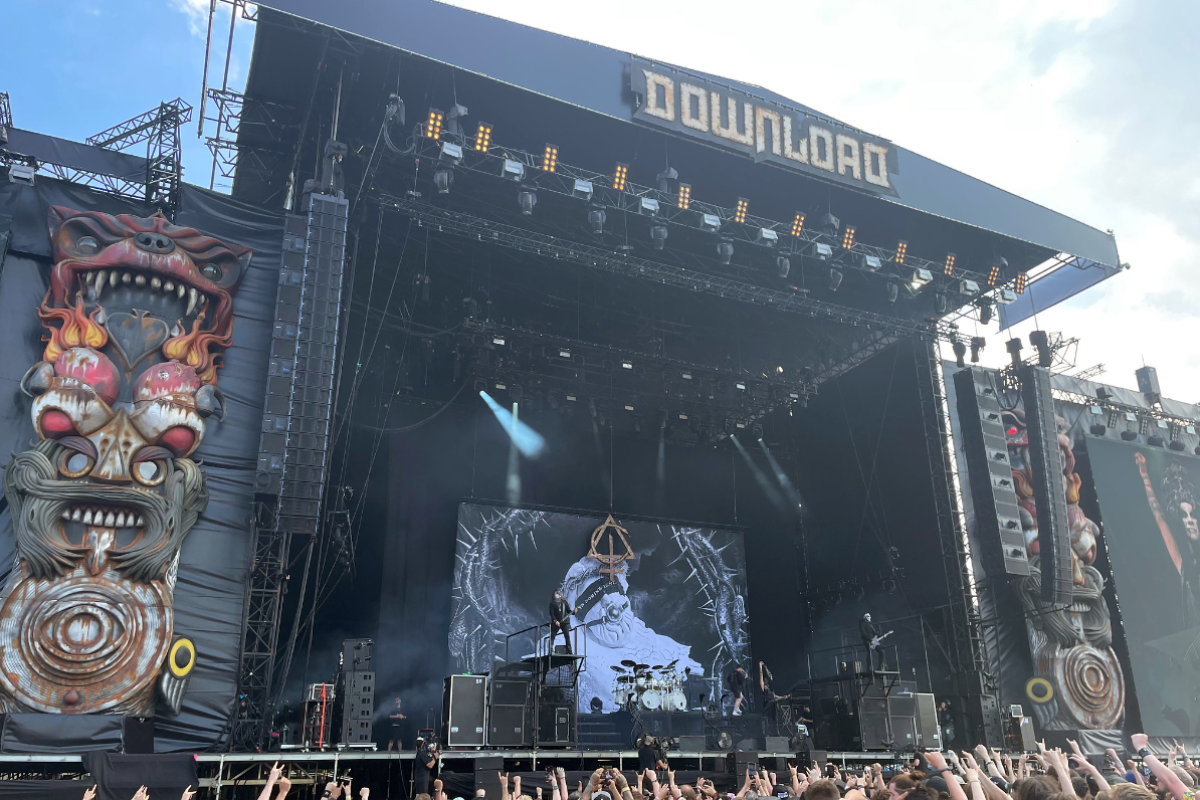
Barclays has stepped back from sponsoring this year's Download Festival
Photo: Andy Harbach via Flickr
Sponsorship boycotts ‘counterproductive’, says Vaizey
Lord Vaizey’s comments come following Barclays' announcement that it will no longer sponsor Live Nation festivals after artists protested the bank’s ties to firms that supply weapons to Israel.
Former Culture Secretary Ed Vaizey has said artist boycotts of cultural events over corporate sponsorship are “massively counterproductive”.
His comments came during a debate held by Channel 4 over the weekend, which arose after Barclays announced cutting ties with a string of UK music festivals because artists threatened not to perform over the bank’s ties to firms which supply weapons to Israel.
“We live in a complex and globalised world and it's going to be very hard – if you take Barclays out of the picture – to find a bank that's not funding something connected with Israel,” Vaizey said. “If that happens to be your position it’s massively counterproductive.”
READ MORE:
- Musicians quit festival over Barclays sponsorship
- Tate Director calls out British Museum’s BP sponsorship
“Arts organisations work so hard to attract this sponsorship [and] you've now made that job ten times harder,” he added.
Musician Rachel Lu, who performs under the moniker LVRA and withdrew from the Great Escape festival in Brighton over Barclays’ sponsorship, said she could not continue to platform and put her music on a festival that is receiving funding from the bank.
In response to Vaizey, Lu said: “This isn’t a question about whether or not as artists we want commercial sponsorships, this is a question of there are certain boundaries that we need to have and it's part of a wider movement of thinking more ethically about the decisions we make”.
Barclays withdrawal
The TV debate followed the announcement that Barclays is stepping back as a sponsor of all Live Nation festivals in the UK, including Download, Latitude and the Isle of Wight festival.
Protest group Bands Boycott Barclays are among those celebrating the move. The campaign group released a statement saying: “Our demand to Barclays is simple: divest from the genocide, or face further boycotts. Boycotting Barclays, also Europe’s primary funder of fossil fuels, is the minimum we can do to call for change.”
A spokesperson for Barclays told the Guardian that “the only thing that this small group of activists will achieve is to weaken essential support for cultural events enjoyed by millions”.
“The protesters’ agenda is to have Barclays debank defence companies which is a sector we remain committed to as an essential part of keeping this country and our allies safe,” the spokesperson added.
Earlier this month, investment management firm Baillie Gifford cancelled the rest of its sponsorship deals with literary festivals across the UK after protests over its links to both Israel and fossil fuel companies.
Campaign group Fossil Fuel Books had been among those mounting pressure on the company to cease involvement in the fossil fuel industry and demanding it cut ties to companies linked to Israel. The group published an open letter last month, which received over 700 signatures in support from leading writers and publishing industry professionals.
Government funding
When asked during the TV debate if the government should step in to bridge the gap in arts funding left by corporates that cut ties with cultural events, Vaizey, who was Culture Minister between 2010 and 2016, said the government “should not step in”.
“Barclays are not going to change their position. They are simply not going to take a risk in sponsoring cultural events,” Vaizey said. “They’ll probably sponsor sporting events which are much easier and tend not to attract boycotts as sports stars are not going to stop competing in sporting events.”
“Corporate sponsorships have been in the arts for time and memorial as it were,” he added. “The arts originally came from the private sector; the government has only funded the arts for the last 60 or so years.
“It's not a question of government cuts. Even in the time of plenty, arts organisations looked to corporate sponsorship to supplement their income.”
Join the Discussion
You must be logged in to post a comment.